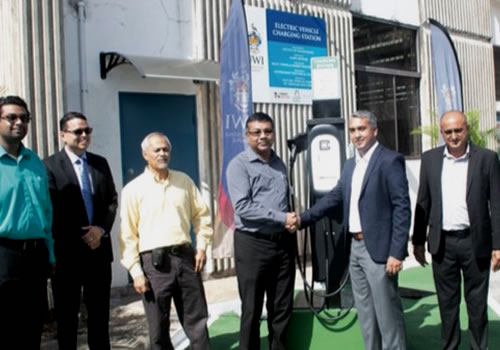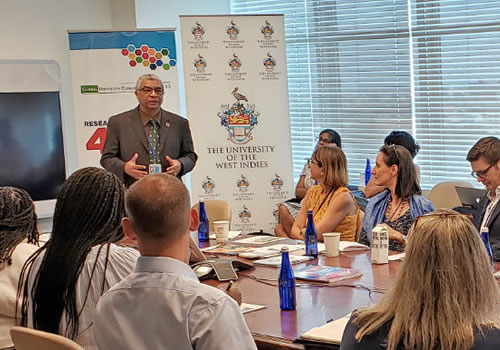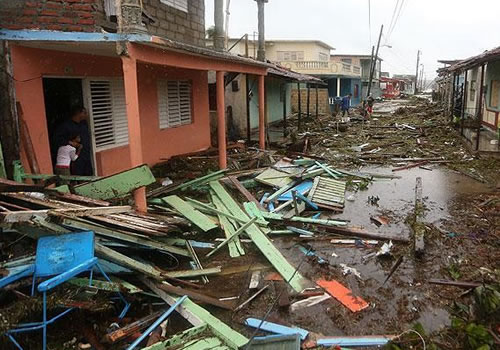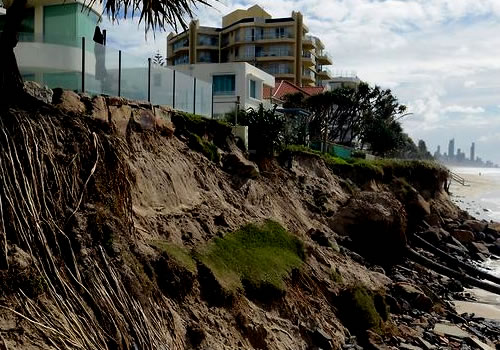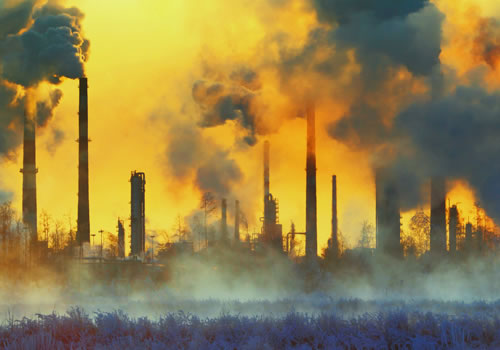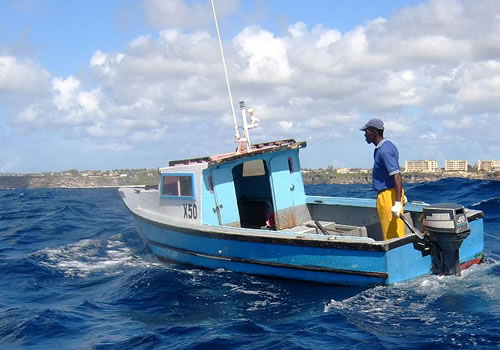Home / Featured Stories
Featured Stories
Get to know the stories behind our climate change initiatives, and how Caribbean societies are impacted by current environmental changes.
The UWI’s electric vehicle station: powering ecological energy on campus
On December 10, 2019, The UWI installed its first, level-two, 230-volt Electric Vehicle Supply Equipment (EVSE) charging station on the campus. Open to the campus community, it is located at the car park bordering the Faculty of Engineering’s building on the southern side of the campus.
Academics for climate change: The UWI leads the global university consortium
The UWI was selected to lead the International Association of Universities’ (IAU) Global Cluster on Higher Education and Research for Sustainable Development (HESD), in 2019. The cluster comprises 16 universities, from 16 countries, from five UNESCO regions.
Climate poverty and justice: critical threats to communities
Inequalities and development gaps will be exacerbated by climate change impacts. The poor and vulnerable will bear a disproportionate burden of negative effects, such as loss of livelihoods, shelter, and reduced food security. This is called climate justice.
5 Lessons from the Special Report on Global Warming of 1.5°C
Small-island developing states (SIDS), and The UWI, scored a much-needed victory when the Summary for Policymakers (SPM) of the Special Report on Global Warming of 1.5°C was approved by the UN’s Intergovernmental Panel on Climate Change (IPCC).
4 Facts from Climate Change Research
An optimistic future is still attainable, but only by drastically changing development policies, incentives and collective actions of governments, business, communities and civil society.
Livelihoods, lives, and loss
The Caribbean is particularly vulnerable to greater health, environmental and economic challenges, due to climate and land changes. Tropical regions face complete loss of coral reefs, which provide coastal protection, faster sea-level rise, and increased threats from coastal flooding.



